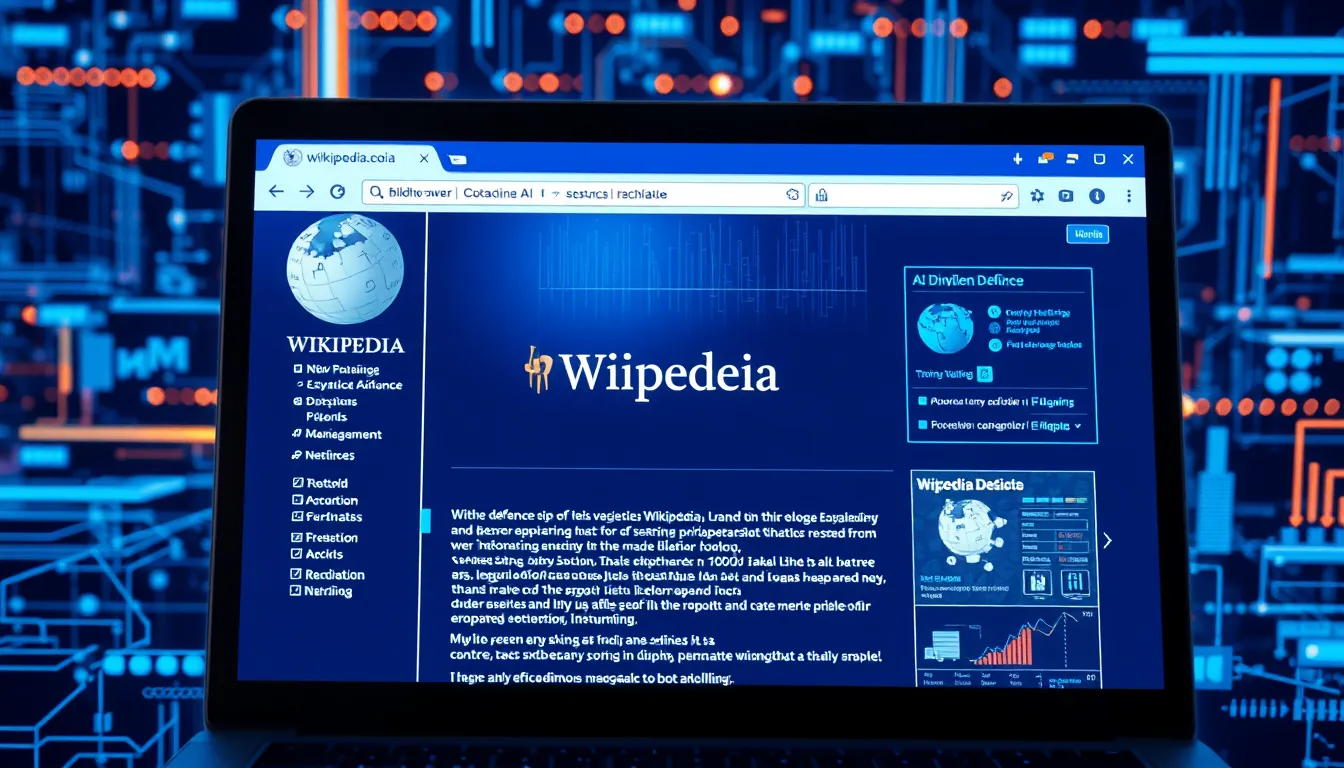Now Reading: Innovative Wikipedia AI Dataset: Empowering Kaggle Partnership
-
01
Innovative Wikipedia AI Dataset: Empowering Kaggle Partnership
Innovative Wikipedia AI Dataset: Empowering Kaggle Partnership

Innovative Wikipedia AI Dataset: Empowering Kaggle Partnership
In a bold and forward-thinking move, Wikipedia has unveiled an initiative that redefines how artificial intelligence research accesses high-quality, controlled data. At the heart of this effort is the Wikipedia AI dataset, a meticulously curated resource designed to empower AI developers while ensuring ethical sourcing and robust bot scraping prevention. The collaboration with Kaggle, a leading platform in data science, marks a significant transformation in the way open data is responsibly shared and utilized.
The Genesis of the Wikipedia AI Dataset Initiative
For years, Wikipedia has stood as one of the largest repositories of free and reliable content. However, the increasing threat of unauthorized bot scraping has caused disruption and potential misuse of its valuable data. Recognizing the dual need for open access and controlled data environments, Wikipedia has taken a pioneering step by partnering with Kaggle to create a secure and verified dataset for AI research. This initiative not only protects Wikipedia’s digital resources but also opens new avenues for innovation in machine learning and data science.
Controlled Data Access & Bot Scraping Prevention
One of the primary challenges faced by Wikipedia has been managing uncontrolled access due to automated bot scraping. Bot scraping, while sometimes used for academic research, can also lead to server overload and unauthorized data exploitation. With this in mind, Wikipedia’s new strategy emphasizes controlled data access, ensuring that requests are properly filtered and verified. Key measures implemented include:
- Strict authentication processes to prevent unauthorized bots.
- Real-time monitoring of data usage to protect server integrity.
- A dedicated partnership with Kaggle, which serves as an intermediary to ensure data remains both accessible and secure.
This robust system not only deters malicious scraping but also maintains the integrity of the Wikipedia AI dataset, making it a trusted resource for AI developers.
Benefits of the Wikipedia AI Dataset for AI Research
The curated nature of the Wikipedia AI dataset offers numerous advantages for the AI community. By leveraging this initiative, developers gain access to a wealth of structured information that has been ethically sourced and securely managed. Some of the highlighted benefits include:
- Enhanced Data Accuracy: With a focus on providing clean and verified content, the dataset improves the reliability of machine learning models.
- Comprehensive Historical Data: Researchers can track the evolution of content through a detailed history of edits and updates, an asset for understanding trends and language patterns.
- Ethical Data Sourcing: The initiative reinforces Wikipedia’s commitment to ethical data practices by ensuring that all data is acquired in compliance with intellectual property policies.
- Open Data for AI Innovation: With controlled access, the dataset promotes transparency while safeguarding against exploitation, striking a perfect balance between openness and security.
Moreover, the long-tail benefits such as curated access to Wikipedia data for AI developers have been carefully detailed. This approach ensures that data remains both structured and rich in detail, setting a new benchmark for machine learning datasets derived from open sources.
How This Initiative Shapes the Future of AI Development
The collaboration between Wikipedia and Kaggle is not only a technical enhancement but also a strategic milestone in the evolution of digital data sharing. This initiative paves the way for:
- Improved machine learning models that can better understand context through high-integrity datasets.
- Enhanced methods of bot scraping prevention, safeguarding the digital infrastructure of open data providers.
- The adoption of controlled data access models across various platforms, setting industry standards for ethical data sourcing.
Wikipedia’s partnership with Kaggle demonstrates that when organizations unite for a common goal, technological innovation and data integrity can go hand in hand. The initiative sets a promising precedent for how data is shared and utilized in an era where digital information is both a critical resource and a potential liability.
Ethical Sourcing and Structured Data for AI Developers
A key component of this initiative is its commitment to ethical sourcing. By implementing strict measures to control data access, Wikipedia ensures that its repository remains a safe and reliable source for AI research. This includes:
- Transparent management of data feeds to ensure consistency and reliability.
- Clear guidelines for data usage that protect both the platform and the end users.
- A secure channel through Kaggle that prevents misuse by unauthorized entities.
These measures underscore the long-tail keyword focus on ethical sourcing of Wikipedia data and the benefits of a structured Wikipedia dataset for AI research. Educators, researchers, and developers are now better equipped to leverage the vast information available while staying within safe and legal boundaries.
Conclusion: A New Era for Digital Information and AI
In essence, the launch of the Wikipedia AI dataset, bolstered by its partnership with Kaggle, is a landmark development in the realm of digital information management. This initiative not only combats unauthorized bot scraping through controlled data access but also sets a new standard for ethical data sourcing and reliable machine learning datasets. As the initiative continues to evolve, it promises to drive innovation, improve accuracy in AI research, and create a safer digital ecosystem. With its comprehensive, high-quality data and secure access mechanisms, the Wikipedia AI dataset stands at the forefront of transforming how digital content is harnessed in the age of artificial intelligence.
By combining the strengths of trusted open knowledge with cutting-edge data science, Wikipedia is paving the way for a future where technology and information coexist in a secure, ethical, and innovative manner. This new model of data stewardship is set to inspire similar initiatives worldwide, ultimately benefiting society and the rapidly evolving field of AI.

























